
The New York Philharmonic, officially the Philharmonic-Symphony Society of New York, Inc., globally known as New York Philharmonic Orchestra (NYPO) or New York Philharmonic-Symphony Orchestra, is a symphony orchestra based in New York City. It is one of the leading American orchestras popularly referred to as the "Big Five". The Philharmonic's home is David Geffen Hall, located in New York's Lincoln Center for the Performing Arts.
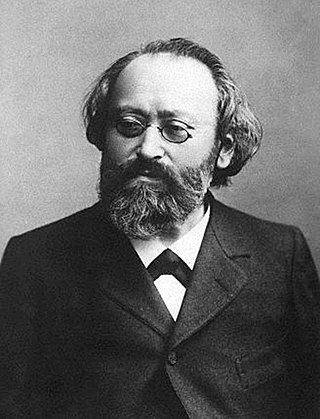
Max Bruch was a German Romantic composer, violinist, teacher, and conductor who wrote more than 200 works, including three violin concertos, the first of which has become a prominent staple of the standard violin repertoire.

Victor August Herbert was an American composer, cellist and conductor of English and Irish ancestry and German training. Although Herbert enjoyed important careers as a cello soloist and conductor, he is best known for composing many successful operettas that premiered on Broadway from the 1890s to World War I. He was also prominent among the Tin Pan Alley composers and was later a founder of the American Society of Composers, Authors, and Publishers (ASCAP). A prolific composer, Herbert produced two operas, a cantata, 43 operettas, incidental music to 10 plays, 31 compositions for orchestra, nine band compositions, nine cello compositions, five violin compositions with piano or orchestra, 22 piano compositions and numerous songs, choral compositions and orchestrations of works by other composers, among other music.

Joseph Joachim was a Hungarian violinist, conductor, composer and teacher who made an international career, based in Hanover and Berlin. A close collaborator of Johannes Brahms, he is widely regarded as one of the most significant violinists of the 19th century.

Esa-Pekka Salonen is a Finnish conductor and composer. He is the music director of the San Francisco Symphony and conductor laureate of the Los Angeles Philharmonic, Philharmonia Orchestra in London and the Swedish Radio Symphony Orchestra.
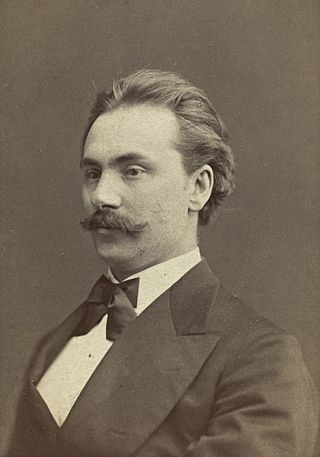
Johan Severin Svendsen was a Norwegian composer, conductor and violinist. Born in Christiania, Norway, he lived most his life in Copenhagen, Denmark.

Frederick Stock was a German conductor and composer, most famous for his 37-year tenure as music director of the Chicago Symphony Orchestra.
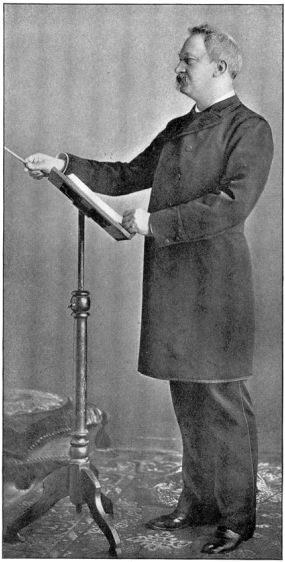
Theodore Thomas was a German-American violinist, conductor, and orchestrator. He is considered the first renowned American orchestral conductor and was the founder and first music director of the Chicago Symphony Orchestra (1891–1905).
The Calgary Philharmonic Orchestra is an orchestra based in Calgary, Alberta, Canada. The orchestra gives the majority of its performances in the Jack Singer Concert Hall at Arts Commons. It is also the resident orchestra for the Calgary Opera, Alberta Ballet Company, and the Honens International Piano Competition.
The Bergen Philharmonic Orchestra is a Norwegian orchestra based in Bergen. Its principal concert venue is the Grieg Hall.

Louis Théodore Gouvy was a French/German composer.
Alfred Wallenstein was an American cellist and conductor. A successful solo and orchestral cellist in his early life, Wallenstein took up conducting in the 1930s and served as music director of the Los Angeles Philharmonic from 1943 to 1956.

Leopold Damrosch was a German American orchestral conductor and composer.

Adolf Heinrich Anton Magnus Neuendorff, also known as Adolph Neuendorff, was a German-American composer, violinist, pianist and conductor, stage director, and theater manager.

Theodore Eisfeld was a conductor, most notably of the New York Philharmonic Society, which became the New York Philharmonic.
Ludwig von Brenner was a German conductor and composer.

Karel Halíř was a Czech violinist who lived mainly in Germany. "Karel" is also given as Karol, Karl or Carl; "Halíř" is also given as Halir or Haliř.
Ludwig Manoly (1855–1932) was a Hungarian-born double bassist who studied in Vienna and upon completing his studies, spent his life in the United States. He was principal bass of the New York Philharmonic from 1892, after performing with the orchestra since 1880, and faculty at the National Conservatory, under the direction of Antonín Dvořák, and the Institute of Musical Art, which later became the Juilliard School.
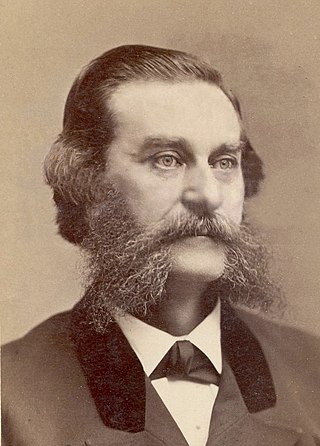
Carl Zerrahn was a German-born American flautist and conductor. His widespread activity in the region made him an influential figure in New England and Boston classical music, especially choral music, in the latter half of the 19th century. He was especially successful in the presentation of the great oratorios and the management of large choruses.
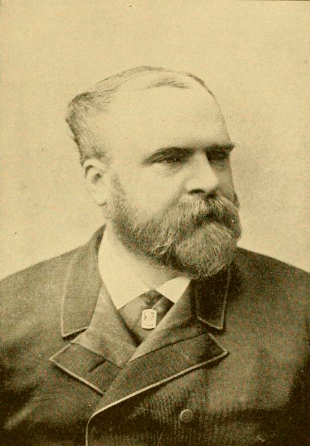
Sebastian Bach Mills was an English pianist, composer and piano instructor who made his concert career in the United States and gave the first American performances of many important works.














